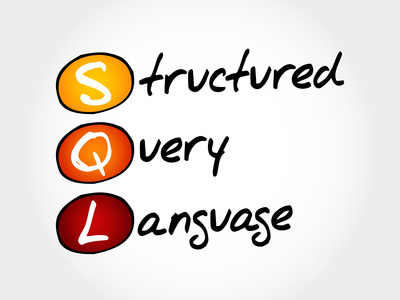Our expert trainers can help you get the best results.
If you would like any further information please contact one of our training advisors.

While this may seem like an really bold statement, learning SQL could be one of the greatest career decisions you make. Between the potential salary, no longer needing others to give you information, and being able to ask ANY question about your business, learning SQL enables you to do heaps more than you could have done previously.
A: Everyone should learn SQL.
While this may seem like an really bold statement, learning SQL could be one of the greatest career decisions you make. Between the potential salary, no longer needing others to give you information, and being able to ask ANY question about your business, learning SQL enables you to do heaps more than you could have done previously.
So what is SQL?
SQL (Structured Query Language) is the primary language used to manage data and data structures held within a relational database management system (RDBMS). Simply put, SQL is the language you use to talk with a database. There are four basic actions that SQL can perform: INSERT, SELECT, UPDATE, and DELETE (these are sometimes humorously referred to as CRUD operations standing for Create, Read, Update, Delete).
Relational Database Management Systems (RDBMS) are computer software that enables a user to create and manage a database using a certain platform.
What are some database concepts?
A database is basically an structured collection of data. A database comprises of many tables, and a table stores rows of data in an organized format defined by the table’s columns (also known as fields). All of this represents the basic hierarchy of a database. So when writing SQL queries, you are manipulating rows of data stored in tables contained within a database.
Fine, so the quick SQL introduction is done. Let’s get to the cool stuff.
Why should you learn SQL?
1) Because you can earn really good money.
Anyone would like to earn a better salary and this can happen with having good SQL skills. Either as an SQL Developer if you like coding, as a Database administrator if you like to keep systems running efficiently and effectively or as an SQL Analyst if you want to provide businesses with information that allows them to make better decisions and prosper.
2) Because it’s everywhere technology is today.
Database technologies such as PostgreSQL, MySQL and Microsoft SQL Server power large organizations, small businesses, hospitals, banks, universities. Indeed, just about every computer and person with access to technology eventually touches something SQL. It is even in your smartphone whether it is an iPhone or an Android they all use SQL.
3) Because SQL is one of the most sought-after skills by hiring employers.
Employers are actively seeking out those people who know SQL. It’s one thing to be able to earn a high salary, but employers know the value that someone skilled in SQL brings to their organization and want to hire these individuals. If you are looking to move jobs, learning SQL makes you a highly sought after prospect.
4) Because you can get answers to any question you ask.
Think of all the questions you could ask about your data on a regular basis. What were sales last year? What is our average customer satisfaction rating? At what rate have we reduced expenses since last summer? These are all questions that can be answered using SQL. Once you identify the database that stores the data you seek to explore, SQL empowers you to answer your own questions. You no longer need to rely on simple, pre-built reports or emailing co-workers to track down data. SQL puts you in control to become a more independent employee.
5) Because you no longer limited by the size of a spreadhseet.
Ever crashed a spreadsheet because you had a thousands of rows of data? Relational databases are designed to store millions upon millions of rows of data. SQL allows you perform operations on this huge amount of data without having to worry about crashing a program not designed for that much information. Microsoft Excel is a great tool; it just isn’t as equipped to perform operations on tens of millions of rows at once. Relational databases are designed for those larger operations, and SQL is the language that allows you to complete them.
6) Because you won’t ever wonder, “How did I create that report again?”.
SQL queries can be easily saved and re-used and revamped any time you like. SQL code can also be annotated with comments, so you can give clear descriptions directly in your query. When you work with a spreadsheet, you might be forced to do a long multi-step process. First, you might have to export data from some standard report, sort it, then add headers, then filter out certain values etc etc.
With SQL code, you simply write the code once, save it, re-open it, and re-run it if you ever need to produce a report twice. Think of the hours – even days – that you could get back each month by not having to hand produce reports that can easily be automated.
Final Remarks
I am probably biased when I say “everyone should learn SQL”, but the numbers don’t lie. SQL is an incredibly important and valuable skill employers desire. So much of our business is digital now. Digital equals data; data equals databases, and, to be in control of those databases, you need SQL. Read any business journal and your are sure to see something about business intelligence (BI) or analytics. As organizations strive to do more with their data, they are going to need more individuals with the skills to access and analyze that data. SQL is the key skill that enables you to do just that.